Cryptocurrency Taxation in Canada 2026: Complete Guide to CRA Rules

Table of Contents
- Overview of Cryptocurrency in Canada
- Canada’s Tax Authority & Cryptocurrency
- Key Canadian Tax Forms for Crypto
- Crypto Taxable Events in Canada
- Selling Crypto for Canadian Dollars (CAD)
- Short-Term vs. Long-Term Capital Gains in Canada
- Staking, Mining, and Other Crypto Income
- Crypto Losses and Loss Harvesting
- Crypto Tax Reporting in Canada: Manual Reporting vs. Software
- Crypto Taxes for Businesses in Canada
- Cross-Border Crypto Tax Considerations
- CRA Audits and Penalties for Crypto Tax Reporting
- Canada’s Approach to NFTs and Crypto Collectibles
- Tax-Advantaged Strategies for Canadian Crypto Investors
- Voluntary Disclosure and Correcting Past Mistakes
- Future of Crypto Taxation in Canada
- Conclusion
Overview of Cryptocurrency in Canada
Cryptocurrency has become a significant part of the Canadian economy, with more and more Canadians adopting it for various purposes, such as investment, transactions, and payments. As of recent estimates, millions of Canadians own or use cryptocurrencies like Bitcoin (BTC), Ethereum (ETH), and Litecoin (LTC), making Canada one of the most crypto-friendly countries globally.
Canada's cryptocurrency market is regulated and controlled, yet still growing, with significant developments in areas such as blockchain technology, decentralized finance (DeFi), non-fungible tokens (NFTs), and crypto-based payment systems. These technologies are not only reshaping the financial landscape but are also challenging traditional financial regulations.
Despite the growing adoption of cryptocurrencies, regulatory clarity remains a key concern for Canadian taxpayers and businesses. In particular, many Canadian investors and crypto enthusiasts struggle with understanding the tax implications of their crypto activities, whether it’s trading, staking, mining, or spending.
Canada, while open to cryptocurrencies, has a complex regulatory framework when it comes to taxation. The Canada Revenue Agency (CRA) treats cryptocurrencies as property, and as such, any transaction involving crypto can trigger a taxable event - whether it's a capital gain, income, or other forms of taxable activity.
Importance of Crypto Taxation for Canadian Taxpayers
For Canadian taxpayers involved in cryptocurrency transactions, it is critical to understand the tax implications that come with buying, selling, and holding crypto assets. Many Canadians assume that cryptocurrency transactions are tax-free, especially when they hold their crypto long-term or make small trades for personal use. However, this is not the case. Tax reporting for cryptocurrencies is necessary, and failing to report your transactions could result in penalties, audits, or criminal charges.
The CRA’s regulations on crypto taxation are clear, but often misunderstood by taxpayers. This is especially true when it comes to activities like DeFi (decentralized finance), NFT trading, staking rewards, and cross-border transactions. These activities often have unique tax implications that many software solutions and informal guides fail to account for.
Crypto taxation is complex because of the wide range of use cases and transaction types. Depending on how a Canadian taxpayer uses cryptocurrency, they may face various types of tax obligations:
- Capital gains tax when selling crypto for profit.
- Income tax when receiving crypto payments, staking rewards, or mining rewards.
- GST/HST implications on crypto transactions and exchanges.
Understanding crypto taxation is not just about avoiding penalties. It also involves optimizing tax strategies to make sure that crypto investments and transactions are properly reported while reducing the tax burden to a minimum.
Why Understanding Crypto Tax Laws is Crucial for Canadian Investors
The increasing popularity of cryptocurrencies in Canada has made it essential for investors to understand the full spectrum of tax laws that apply to their crypto-related activities. With the Canadian government cracking down on tax evasion, having a solid grasp of crypto tax rules is vital for staying compliant.
Here are key reasons why understanding crypto tax laws is critical for Canadian investors:
-
Avoiding Penalties and Audits: As crypto transactions grow in complexity, the risk of underreporting or misreporting can lead to IRS audits or CRA investigations. A comprehensive understanding of tax laws helps reduce this risk, especially when transactions involve multiple exchanges, wallets, or jurisdictions.
-
Tax Optimization: Understanding tax laws is key to minimizing your tax liability. By utilizing tax strategies such as loss harvesting or long-term holding, investors can reduce their tax exposure. Furthermore, knowing when to convert or hold crypto can impact the taxable amount.
-
Compliance with Canadian Tax Authorities: The CRA is actively working on regulating cryptocurrency transactions, and failing to comply can result in substantial fines and penalties. By understanding the laws, investors can ensure they meet all tax filing deadlines and requirements, maintaining good standing with the CRA.
-
Impact of Tax Reform: The Canadian government’s approach to cryptocurrency taxation continues to evolve. Tax reforms or regulatory changes can significantly affect the amount of tax owed, as well as the methods for reporting. Staying informed ensures investors are prepared for any future changes.
Canada’s Tax Authority & Cryptocurrency
Canada Revenue Agency (CRA) and Its Role in Crypto Taxation
The Canada Revenue Agency (CRA) is the governing body responsible for enforcing tax laws in Canada. The CRA treats cryptocurrency as property rather than currency. This classification directly impacts the way crypto-related transactions are taxed.
1. Crypto as Property
According to the CRA, cryptocurrency is considered property and not currency. This means taxes on crypto transactions are based on capital gains, similar to the taxation of stocks, bonds, and other investment assets.
This classification is important because it distinguishes crypto from traditional currencies, which are often taxed differently. For example, if crypto were treated as currency, spending it on goods or services would likely not trigger a taxable event. But since it's classified as property, selling, swapping, or spending crypto could result in a taxable capital gain or loss.
2. CRA’s Approach to Taxation
The CRA’s approach to crypto taxation focuses on two main aspects:
-
Capital Gains: When cryptocurrency is sold or exchanged, capital gains tax is triggered based on the difference between purchase price and sale price. If crypto is sold for more than its original cost, the resulting profit is taxed.
-
Income Tax: Crypto payments for goods or services, as well as mining or staking rewards, are considered income and are subject to income tax based on their fair market value at the time of receipt.
CRA’s Approach to Crypto: Property vs. Currency
The CRA’s classification of cryptocurrency as property has specific implications for tax reporting and tax treatment. Here's why it matters:
-
Sales of Cryptocurrency: When you sell, trade, or swap crypto, it is treated as the sale of a capital asset, and any capital gains or losses must be reported. This differs from currency, where such transactions typically wouldn’t trigger taxable events.
-
Spending Cryptocurrency: When you use crypto to buy goods or services, it’s treated as if you sold the cryptocurrency. You need to report any capital gain or loss resulting from the difference between the original purchase price and the market value at the time of spending.
-
Mining and Staking: If you mine or stake cryptocurrency, the resulting tokens are considered income at the time of receipt, and the fair market value of the tokens at the time they are earned must be reported as income. The same applies to airdrops.
Differences in Tax Treatment for Individuals vs. Businesses
1. Individuals and Crypto
For individual taxpayers, the tax treatment of cryptocurrency is generally based on whether the transactions result in capital gains or income.
-
Capital Gains: When crypto is bought and later sold, any profit or loss is treated as a capital gain or capital loss.
-
Income: When crypto is earned through activities like staking, mining, or airdrops, it is treated as income at the fair market value at the time of receipt.
2. Crypto Businesses
For businesses, crypto is treated similarly but with additional complexities. A business that engages in crypto activities, such as mining, accepting payments in crypto, or trading crypto for clients, may face different tax treatment, including:
-
Taxation on Crypto Sales: If a business sells crypto, it will need to report the capital gains on those transactions.
-
Crypto as Income: A business that accepts crypto as payment for goods and services will need to report crypto income based on the market value at the time of the transaction.
-
Crypto Expenses: Crypto businesses can potentially deduct business-related expenses in crypto or incurred in the process of mining or staking.
Key Takeaways
-
CRA’s treatment of cryptocurrency as property leads to capital gains and income tax obligations for Canadian taxpayers.
-
The classification as property means selling, trading, spending, or mining crypto all trigger taxable events.
-
Individuals are taxed based on capital gains for sales and income for earnings from activities like staking or mining, while businesses must account for both crypto income and capital gains.
Facing Uncertainty About CRA’s Crypto Guidelines?
The CRA has specific rules that affect individuals and businesses differently. Avoid confusion and potential penalties - work with Block3 Finance to get expert advice and a personalized tax strategy that ensures compliance with Canadian tax laws. Let’s talk - book your free consultation today!
Key Canadian Tax Forms for Crypto
Canada's cryptocurrency tax reporting system involves several specific tax forms that taxpayers must use to report crypto transactions to the Canada Revenue Agency (CRA). Whether you’re an individual investor, a business accepting crypto, or a miner, these forms ensure that your transactions are properly reported and that you comply with Canadian tax laws.
Form T1: Reporting Personal Crypto Transactions
Form T1 is the standard tax return form for individuals in Canada. It is used to report personal income, including income earned from crypto-related activities like trading, staking, or mining.
-
Crypto Reporting on T1:
-
If you buy and sell crypto or use it for personal transactions, you need to report capital gains or losses on Form T1.
-
You will also report income from staking, mining, or airdrops under the income section of the form.
-
Example: If you sell 1 BTC for CAD and make a capital gain, that transaction must be reported on T1 in the capital gains section.
-
Important Fields on T1:
-
Schedule 3 for capital gains reporting.
-
Line 13000 for other income (staking, mining).
-
It’s critical to track your crypto transactions (cost basis, sale prices) so you can accurately fill out T1 and avoid mistakes that could lead to penalties.
T1135: Reporting Foreign Crypto Holdings
Form T1135, also known as the Foreign Income Verification Statement, is used to report foreign-held assets that exceed $100,000 CAD at any point during the tax year.
If you hold crypto on foreign exchanges (e.g., Binance, Coinbase), this form is required to report those holdings. Even if you don’t directly trade on foreign platforms, holding assets abroad triggers the reporting obligation.
-
Reporting Foreign Crypto Accounts:
-
The T1135 requires you to list any foreign crypto exchanges or wallets you use, even if you never transfer funds back to Canada.
-
Failure to report foreign holdings can result in severe penalties, including fines and criminal prosecution.
-
Example: If you hold ETH on a non-Canadian exchange with a market value exceeding $100,000 CAD, you must file T1135 with your T1 return.
Schedule 3: Reporting Capital Gains/Losses from Crypto
Schedule 3 is the form used to report capital gains and capital losses from selling, trading, or disposing of assets — including cryptocurrency. It applies to transactions where crypto is sold for CAD, traded for another crypto, or used to purchase goods or services.
-
Reporting Crypto on Schedule 3:
-
On Schedule 3, you will report the sale or disposition of cryptocurrencies.
-
This includes gains or losses from trading crypto-to-crypto or from selling crypto for fiat currency.
-
You must calculate your cost basis and proceeds to determine the capital gain/loss.
-
Example: If you sell 0.5 BTC for $25,000 CAD and bought it for $20,000 CAD, you will report the capital gain of $5,000 CAD on Schedule 3.
-
Key Sections:
-
Part 1: Capital gains and losses from crypto.
-
Part 3: Adjustments to the cost basis.
-
Accurate reporting on Schedule 3 ensures that you are taxed fairly and that you avoid issues with the CRA.
Corporate Tax Filings: Schedule 50 (for Crypto Businesses)
If your business is involved in cryptocurrency, such as a crypto exchange, mining operation, or crypto trading firm, the corporate tax filings differ significantly from individual reporting. Businesses must file Schedule 50 to report their corporate income.
-
Schedule 50 is part of the T2 Corporation Income Tax Return, which businesses use to report all forms of business income. If your business accepts or deals in cryptocurrency, you will report your crypto income here.
-
Crypto Business Taxes:
-
Businesses must report crypto revenue (e.g., from mining, trading, or providing services in crypto).
-
Capital gains or losses from crypto transactions (e.g., selling crypto assets for fiat) are reported as business income.
-
Example: If your mining business generates $500,000 CAD from selling mined BTC, that must be reported as business income on T2 and Schedule 50.
Crypto Taxable Events in Canada
In Canada, taxable events occur whenever you buy, sell, trade, earn, or spend cryptocurrencies. These events are governed by the CRA’s rules, and taxable gains or losses need to be reported on your tax return.
Selling Crypto for Canadian Dollars (CAD)
One of the most straightforward taxable events in crypto is selling cryptocurrency for Canadian dollars (CAD). This is considered a disposition of property, and any capital gains or losses must be reported.
How it works: When you sell crypto for fiat (like CAD), you trigger a taxable event that must be reported on Schedule 3. You’ll calculate the capital gain/loss by subtracting your cost basis (what you originally paid for the crypto) from the proceeds (the amount you received in CAD).
Example:
-
You bought 1 BTC for $10,000 CAD.
-
You sold it later for $15,000 CAD.
-
Capital gain = $15,000 (proceeds) – $10,000 (cost basis) = $5,000 (taxable gain).
Key Takeaway: Selling crypto for CAD always triggers a taxable event, and capital gains tax is applied based on the difference between your purchase price and the sale price.
Trading One Crypto for Another
Crypto-to-crypto trades occur when you exchange one cryptocurrency for another, such as BTC for ETH or ETH for ADA. Despite no fiat currency being involved, this is still a taxable event.
How it works: The CRA treats a crypto-to-crypto trade as a disposition of property, meaning that capital gains or losses must be calculated based on the value of the crypto at the time of the trade.
Example:
-
You exchanged 1 BTC for 30 ETH.
-
If the value of BTC at the time of the trade is $60,000 CAD and your cost basis in BTC is $50,000 CAD, you report a capital gain of $10,000 CAD.
Key Takeaway: Crypto-to-crypto swaps must be reported for capital gains tax, and accurate tracking of cost basis is essential.
Spending Crypto on Goods and Services
When you spend crypto on goods or services, the tax implications are similar to those of selling crypto for CAD. Spending crypto is considered a disposition of property, and capital gains tax applies if the crypto has appreciated.
How it works: Spending crypto on a purchase triggers a taxable event. The capital gain or loss is calculated based on the value of the crypto at the time of the transaction, compared to your cost basis.
Example:
-
You spent 1 ETH (purchased for $1,000 CAD) to buy a $2,500 CAD laptop.
-
The capital gain = $2,500 (value at time of purchase) – $1,000 (cost basis) = $1,500 (taxable gain).
Key Takeaway: Spending crypto is treated as a sale and is subject to capital gains tax.
Earning Crypto Through Staking, Mining, Airdrops, and Rewards
Earning cryptocurrency through staking, mining, airdrops, or rewards is taxable as income. The taxable amount is based on the fair market value (FMV) of the crypto at the time of receipt.
Staking and Mining:
Both staking rewards and mining rewards are considered income and must be reported on your tax return. The FMV of the tokens at the time they are earned becomes your cost basis for future sales or disposals.
Airdrops:
Airdrops are often free tokens given by projects to users. While airdrops are taxable as income at FMV, taxation occurs when you have control over the tokens - typically when they are deposited into your wallet.
Key Takeaway: Staking, mining, and airdrops are taxed as ordinary income when received, based on FMV at the time of receipt.
Short-Term vs. Long-Term Capital Gains in Canada
In Canada, capital gains tax is applied when you sell or trade cryptocurrency. However, the tax rate varies based on the holding period of the asset.
How Capital Gains are Taxed in Canada
Canada treats capital gains as 50% taxable of the gain. That is, if you earn a capital gain of $10,000, only $5,000 will be taxable. The other 50% is considered a tax-free gain.
Short-Term Gains vs. Long-Term Gains Tax Rates
Unlike the U.S., Canada does not distinguish between short-term and long-term capital gains in terms of tax rates. Whether you hold crypto for less than a year or for several years, the tax treatment is the same.
-
Short-Term: Any capital gain from a crypto sale within one year will still be taxed as 50% taxable.
-
Long-Term: The same rule applies to long-term holdings - 50% of the gain is taxable, regardless of how long the crypto was held.
The Importance of Holding Period for Tax Planning
While the holding period does not affect tax rates in Canada, it still plays a significant role in tax planning. Long-term holders of crypto can better plan their tax filings and may want to use tax-deferral strategies (e.g., holding crypto in RRSP or TFSA accounts).
Key Takeaways
-
Capital gains in Canada are taxed at 50%, regardless of whether you hold your crypto for the short or long term.
-
Spending, selling, trading, and spending crypto all trigger taxable events.
-
Income from staking, mining, and airdrops is taxed separately from capital gains.
Ready to Ensure Your Crypto Tax Compliance?
Understanding crypto tax laws can be overwhelming, but you don’t have to do it alone. Block3 Finance specializes in cryptocurrency tax reporting and can help you navigate the complexities of capital gains, income reporting, and taxable events.
Book your free consultation today and ensure that your crypto transactions are accurately reported and compliant with Canadian tax laws!
Staking, Mining, and Other Crypto Income
As cryptocurrency continues to evolve, staking and mining have become two of the most popular methods for earning crypto. Whether you’re involved in proof-of-work mining or proof-of-stake activities, the CRA treats income generated from these activities differently than capital gains. It’s essential for Canadian crypto holders to understand the tax obligations for these income-generating activities.
Taxation of Mining Income in Canada
Mining crypto involves using computing power to validate transactions and secure a blockchain network. Miners are rewarded with newly minted crypto (such as BTC or ETH) for their efforts.
In Canada, mining income is treated as business income rather than capital gains, making it subject to regular income tax rates. This means that miners are required to report their earnings as income in the year they are received, based on the fair market value (FMV) of the cryptocurrency at the time of receipt.
Business or Hobby? If you mine crypto as a hobby, it will be treated as personal income. However, if you mine with the intention of making a profit (systematic, ongoing activity), it may qualify as a business. In this case, you can deduct business-related expenses (e.g., electricity costs, hardware, maintenance).
Example:
- If you mine 0.5 BTC and its FMV on the day you receive it is $30,000 CAD, you must report $30,000 CAD as income in the year you receive the reward.
Key Takeaway: Mining rewards are taxed as business income, and it’s crucial to track the FMV of the tokens at the time of receipt.
Taxation of Staking Rewards
Staking involves holding and locking up crypto to support a blockchain network, earning rewards in the process. Staking rewards are considered income and are taxable upon receipt.
-
Income at Receipt: The CRA treats staking rewards as ordinary income, taxed at market value when you receive the tokens. This is similar to interest income or other forms of passive income.
-
Cost Basis: The cost basis of the staking rewards is the value at the time they are received, which will be used to determine capital gains when the tokens are sold in the future.
Example:
- If you stake 10 ETH and earn 0.5 ETH as a reward, and the market value of ETH at the time is $3,000 CAD, you report $1,500 CAD as income.
Key Takeaway: Staking rewards are taxable as income when received and should be tracked carefully for tax purposes.
Reporting Mining and Staking Income for Canadian Taxpayers
Reporting mining and staking income is mandatory for Canadian taxpayers. These activities are typically reported on Schedule 3 (for capital gains) and Schedule 8 (for income), depending on whether the activity is considered personal or business-related.
-
Business Income Reporting: If you operate as a business (e.g., large-scale mining), you’ll report the income on T1 or T2 tax forms.
-
Personal Income Reporting: If you mine or stake as a hobby, the income should be reported as part of personal income on T1.
It's essential to calculate the FMV of the tokens at the time of receipt, ensuring that all rewards are accurately reported.
Not sure how to report your mining or staking income?
At Block3 Finance, we specialize in helping crypto holders navigate the complexities of mining and staking tax reporting. Book your free consultation today, and our experts will guide you through the proper reporting process to ensure compliance with Canadian tax laws!
Crypto Losses and Loss Harvesting
In the world of cryptocurrency, the market can be volatile, and many investors experience capital losses. However, these losses don’t necessarily mean you are stuck with them. Loss harvesting is a strategy that allows Canadian crypto investors to offset gains with losses, helping reduce taxable income.
How Crypto Losses Can Offset Gains
Crypto loss harvesting involves selling crypto assets at a loss to offset gains from other transactions. This is similar to the practice of selling losing stocks to reduce tax obligations on capital gains. In Canada, you can use losses from crypto sales to reduce your overall taxable gains.
-
Capital Gains Offset: If you sell an asset at a loss, that loss can be used to offset other capital gains you’ve made during the same tax year.
-
Net Capital Losses: If your losses exceed your gains, the net capital loss can be carried forward to future years or carried back to offset gains from the previous three years.
Example:
-
You sold BTC at a $5,000 CAD gain, but also sold ETH at a $4,000 CAD loss.
-
You can use the $4,000 loss to offset $4,000 of your gains, reducing the taxable amount on your capital gains.
The Concept of Loss Harvesting for Tax Efficiency
Loss harvesting is a powerful tool for reducing your taxable income. It works by offsetting your capital gains with capital losses on your crypto assets. This strategy becomes especially useful during periods of crypto market downturns when many investors have unrealized losses.
-
Tax Deferral: By carrying forward capital losses to future years, you can offset future gains, thereby deferring tax payments to a time when the market is performing better.
-
Tax Efficiency: Loss harvesting can be strategically used to ensure you minimize taxes while still maintaining exposure to crypto markets.
Example:
- If you realize $50,000 in gains from crypto sales in 2023 but also have $40,000 in losses, you can use $40,000 in losses to reduce your 2023 taxable income.
Carrying Forward Capital Losses to Future Years
Canadian taxpayers can carry forward capital losses that exceed their gains to future years. This means that if you don’t have enough gains to offset your losses in the current year, you can use the losses in the next tax year to offset future gains.
-
Net Loss Carryforward: Unused capital losses can be applied to future years’ gains, lowering your tax obligations in those years.
-
Tax Planning: This strategy allows taxpayers to manage their taxable income over several years and maximize tax efficiency.
Example:
- In 2023, you realized a net loss of $30,000 CAD. You carry that loss forward to 2024 to offset $30,000 in capital gains from 2024.
Key Takeaways
-
Crypto loss harvesting can significantly reduce your taxable crypto gains.
-
Capital losses from crypto transactions can be carried forward to future years to offset future gains.
-
Proactively implementing loss harvesting strategies is a great way to ensure tax efficiency during periods of market downturns.
Block3 Finance can assist you in implementing loss harvesting strategies and ensuring your crypto taxes are as efficient as possible. Book your free consultation today, and let’s ensure your crypto tax obligations are minimized!
Crypto Tax Reporting in Canada: Manual Reporting vs. Software
Benefits of Manual Reporting
While crypto tax software can help automate certain aspects of tax filing, manual reporting remains a reliable method for ensuring accurate, detailed reporting of your crypto transactions. Here are the key advantages of manual reporting:
1. Customization and Precision
Manual reporting allows for a customized approach to your crypto tax filing. It involves reviewing each transaction individually, considering the context, and ensuring accurate categorization. This is especially important for complex transactions such as staking, DeFi participation, cross-chain swaps, and NFT sales, which require a nuanced understanding of the tax rules.
For example, if you're staking rewards or yield farming, manual tracking ensures that each transaction is correctly categorized and taxed as income at the time of receipt, not when you dispose of the asset.
2. Avoiding Automation Mistakes
Crypto tax software can sometimes make assumptions or generalizations, especially when it comes to complex or less common transactions. Mistakes in automated calculations can occur, such as categorizing certain activities incorrectly or missing out on loss harvesting opportunities. Manual reporting reduces these risks by ensuring a detailed and accurate review of each transaction, especially for hard-to-categorize activities.
3. Flexibility for Tax Optimization
Manual reporting gives you the flexibility to implement personalized tax strategies, such as loss harvesting or long-term holding strategies. Software tools are designed to fill out forms quickly, but they may miss out on tax-saving strategies that are unique to your portfolio.
For example, using manual reporting, we can optimize your tax strategy by strategically offsetting capital gains with capital losses or by using tax-efficient structures for long-term holdings.
4. Better Record-Keeping
Manual reporting ensures that every transaction is documented and categorized accurately, creating a comprehensive audit trail. This is vital for future tax filings and to provide proof in case of a CRA audit.
Unlike software, which may not handle cross-exchange transactions or certain DeFi actions with complete precision, manual reporting ensures that all documentation is organized and ready for tax filing.
Benefits of Using Crypto Tax Software
Crypto tax software can be an effective tool for individuals who prefer a more automated approach to reporting their crypto transactions. While manual reporting provides greater flexibility, there are also key benefits to using tax software.
1. Time-Saving
Using crypto tax software can significantly reduce the time and effort required to file your taxes. It automatically imports transaction data from exchanges, wallets, and DeFi platforms, calculating capital gains, staking rewards, and other taxable events.
Software tools like Koinly and CoinTracker sync with exchanges, making it easier for individuals to handle their tax reporting without manually tracking each transaction.
2. Simplified Data Aggregation
With crypto tax software, you don’t have to worry about manually entering each transaction. It aggregates data from multiple wallets and exchanges into one platform, simplifying the reporting process. This can be especially useful for individuals with high-volume transactions or those using multiple exchanges and wallets.
3. Accuracy and Efficiency
While manual reporting requires more attention to detail, crypto tax software ensures that all taxable events are captured, reducing the risk of missing important transactions. It helps to automatically categorize and track the cost basis, making the process faster and more efficient.
However, keep in mind that while software can handle many transactions efficiently, manual verification is still recommended to ensure all data is correctly categorized.
4. Compliance with Tax Laws
Crypto tax software is regularly updated to reflect changes in tax laws and regulations, ensuring compliance with the latest guidance from the CRA and other tax authorities.
This is a major advantage for individuals who prefer not to stay constantly updated on the latest changes in crypto tax laws.
Key Takeaways
-
Manual reporting offers greater accuracy, flexibility, and the ability to implement tax-saving strategies tailored to your specific crypto activity.
-
Crypto tax software offers the convenience of automated transaction tracking and reporting, saving time for individuals with simple crypto portfolios or those who prefer a more automated approach.
-
Both methods have their advantages, and the choice between manual reporting and software depends on the complexity of your crypto portfolio and your willingness to manage the details.
Need help deciding between manual reporting and crypto tax software?
Whether you choose manual reporting or prefer crypto tax software, Block3 Finance can provide expert guidance and ensure that your tax filings are accurate, complete, and compliant with Canadian tax laws. Book a free consultation today and let us help you optimize your crypto tax strategy!
Crypto Taxes for Businesses in Canada
Accepting Crypto as Payment for Goods/Services
For businesses in Canada, accepting cryptocurrency as a method of payment for goods or services is becoming increasingly common. However, there are specific tax implications that businesses must consider when accepting crypto as payment.
Tax Treatment for Crypto Payments
When a business accepts cryptocurrency in exchange for goods or services, the Canadian Revenue Agency (CRA) treats the transaction as income at the fair market value (FMV) of the crypto at the time of the transaction. This FMV is used as the income that the business will need to report.
Example: A business sells tech equipment for 1 BTC when BTC is valued at $40,000 CAD.
-
The business must report $40,000 CAD as business income.
-
The cost basis of the BTC is the market value at the time of receipt, and this will be used for any future tax implications when the crypto is disposed of (sold, traded, or spent).
Sales Tax Considerations
Businesses accepting crypto as payment must also consider Goods and Services Tax (GST) or Harmonized Sales Tax (HST), which applies to most goods and services in Canada. The CRA requires GST/HST to be paid on crypto transactions, and the business must calculate the tax based on the FMV of the crypto at the time of the transaction.
GST/HST on Crypto Transactions: Businesses need to calculate GST/HST on the FMV of the crypto received and remit it to the CRA as part of their tax return.
Paying Employees in Crypto: Tax Implications
Paying employees in cryptocurrency presents unique challenges and tax implications. According to the CRA, crypto compensation is considered income and is subject to income tax at the time of receipt.
Taxable Event for Employees
When employees receive cryptocurrency as part of their compensation, the FMV of the crypto on the day of receipt is treated as income for tax purposes. It is reported as employment income and taxed according to the employee’s marginal tax rate.
Example: If an employee receives 0.5 BTC for their salary, and the FMV of BTC on the day it is received is $25,000 CAD, the employee will report $25,000 CAD as income on their tax return.
Withholding Taxes
As an employer, businesses must withhold income tax, CPP, and EI contributions on crypto payments, just as they would with traditional fiat salary payments. The employer must then remit the withheld taxes to the CRA.
Using Crypto for Business Expenses: Reporting and Taxation
Businesses can use cryptocurrency to pay for business expenses. When doing so, the tax treatment largely mirrors that of spending crypto for personal use, but with the added complexity of business expense deductions.
Tax Treatment for Business Expenses
When a business uses crypto for business-related expenses (such as paying vendors or buying equipment), the crypto is considered a disposition. This triggers a capital gain or loss based on the FMV of the crypto at the time it is spent.
Example: If a business buys mining equipment for $5,000 CAD using 1 ETH, and the ETH is worth $5,000 CAD at the time of purchase, the business must calculate the capital gain or loss based on the original cost basis of the ETH.
Deductions for Business Expenses
The business may be eligible to deduct the expense (such as mining equipment or software services) if it meets the CRA's criteria for ordinary and necessary business expenses.
Corporate Tax Strategies for Crypto Companies
Crypto businesses, such as crypto exchanges, mining operations, or blockchain-based startups, can benefit from tax-saving strategies specific to the crypto industry. These strategies can help businesses optimize their tax liability and ensure compliance with the CRA's guidelines.
Business Expenses Deductions
Crypto businesses can deduct certain expenses related to operating in the crypto industry. These can include:
-
Mining equipment: Cost of purchasing and maintaining hardware.
-
Software and development: Expenses related to developing and maintaining blockchain infrastructure.
-
Employee wages: Salaries and wages for employees, including crypto payroll.
-
Utility costs: For mining operations, electricity and internet services may be deductible.
Tax Incentives for Innovation
Canada offers a number of tax incentives for innovative businesses engaged in technological development. The Scientific Research and Experimental Development (SR&ED) program may apply to businesses developing blockchain technologies and crypto-related innovations. Crypto businesses may be able to claim SR&ED tax credits for qualifying research activities.
Cross-Border Crypto Tax Considerations
Cross-border crypto transactions add a layer of complexity to tax reporting. Canadian taxpayers with crypto holdings in foreign exchanges or cross-border crypto investments must be aware of the global tax implications. Failing to report foreign-held crypto accounts could result in significant penalties.
Reporting Foreign Crypto Accounts (FBAR & FATCA)
Canadian taxpayers are required to report foreign bank accounts, including crypto exchanges or wallets held outside Canada, if the total value exceeds $100,000 CAD at any point during the year.
FBAR Reporting
While the Foreign Bank Account Report (FBAR) is a requirement for U.S. persons, Canadian residents may also be affected by FBAR regulations if they have U.S. crypto accounts that exceed the reporting threshold.
FATCA Compliance
The Foreign Account Tax Compliance Act (FATCA) requires U.S. citizens and residents to report foreign accounts, including crypto exchanges. If Canadian taxpayers hold crypto in U.S.-based exchanges, they may be required to file FATCA reports to ensure compliance with cross-border regulations.
Tax Implications of Holding Crypto in Foreign Exchanges
Holding crypto on foreign exchanges like Coinbase, Binance, or Kraken can trigger reporting obligations for Canadian residents, especially when the total holdings exceed the $100,000 CAD threshold. Additionally, capital gains or income tax may apply when transferring assets across borders or realizing profits from crypto.
Example:
If a Canadian taxpayer holds ETH on a U.S.-based exchange, the value of the holdings must be reported on T1135, and any gains from selling or trading crypto will be subject to Canadian taxes.
Canada-U.S. Tax Treaties: Avoiding Double Taxation
The Canada-U.S. tax treaty is designed to prevent double taxation on cross-border income and transactions, including crypto. This treaty allows taxpayers to claim foreign tax credits on taxes paid to the U.S., which can be used to offset Canadian taxes owed on U.S.-based crypto activities.
Handling International Crypto Transactions
Taxpayers engaging in cross-border crypto transactions should track their transactions carefully to avoid over-reporting or under-reporting. The tax treatment for international crypto trades may differ based on the country of residence of the counterparty, making it vital to maintain accurate records for tax reporting.
At Block3 Finance, we specialize in cross-border tax compliance and can help you navigate the complexities of foreign crypto accounts, FBAR, and FATCA regulations. Book your free consultation now and ensure that your international crypto activities are fully compliant.
CRA Audits and Penalties for Crypto Tax Reporting
Common Triggers for CRA Crypto Audits
The Canada Revenue Agency (CRA) has been increasing its focus on cryptocurrency transactions, and audits are becoming more common for crypto investors and businesses. Certain actions or reporting discrepancies can trigger a CRA audit, especially when large transactions or unreported holdings are involved.
Audit Triggers:
-
Failure to report crypto transactions: If you fail to report capital gains or crypto income, you may be flagged for audit.
-
Inconsistent reporting: Any discrepancies between sales and purchases or unexplained losses can attract CRA scrutiny.
-
Large transactions: Significant sales or transfers (especially cross-border) can raise red flags.
Penalties for Non-Reporting or Underreporting Crypto Taxes
The CRA imposes severe penalties for failing to report crypto transactions accurately. Penalties can include:
- Interest on unpaid taxes
- Fines for underreporting or non-reporting
- Criminal charges for severe cases of tax evasion
Example:
If you fail to report $10,000 in capital gains from crypto transactions, the CRA may impose interest on the unpaid taxes and charge penalties for late reporting.
How to Avoid an Audit and Reduce the Risk of Penalties
To avoid a CRA audit, it’s essential to:
-
Accurately report all crypto transactions, including gains, losses, and income.
-
Keep detailed records of all transactions, including dates, amounts, and the cost basis of your crypto holdings.
-
Use crypto tax software or consult with tax professionals to ensure compliance and reduce errors.
Handling a CRA Audit for Crypto-Related Transactions
If you’re audited by the CRA, it’s important to:
-
Cooperate with CRA auditors and provide accurate documentation for all crypto transactions.
-
Review your past filings and amend any errors or discrepancies.
-
Work with a tax professional to navigate the audit process and ensure the best outcome.
Canada’s Approach to NFTs and Crypto Collectibles
Taxation of NFTs in Canada
Non-Fungible Tokens (NFTs) have become a prominent part of the cryptocurrency landscape. Whether you’re creating, buying, or selling NFTs, understanding their tax implications is essential for Canadian investors and creators.
In Canada, NFTs are primarily treated as property for tax purposes, meaning they are subject to capital gains tax when disposed of. However, the taxation of NFTs can be complex, depending on the activity and the taxpayer's intentions.
Taxable Event: When you buy or sell an NFT, or if you mint and then sell an NFT, the transaction is considered taxable. The CRA requires you to report any profits made from the sale of NFTs as capital gains if the NFTs are held as an investment. If the NFT is sold as part of a business activity (e.g., flipping NFTs), it will be treated as business income.
Example:
You purchase an NFT for $2,000 CAD and sell it later for $5,000 CAD.
- The $3,000 CAD profit will be reported as capital gains (if held as an investment).
Selling and Buying NFTs: Capital Gains vs. Income
When it comes to buying and selling NFTs, understanding whether you’re dealing with capital gains or income is crucial in determining the tax rates applied and how to report the transaction to the CRA.
Capital Gains:
-
If you hold an NFT as a capital asset (e.g., for investment purposes), any gain made from selling the NFT is subject to capital gains tax.
-
The taxable event occurs when you dispose of the NFT (selling, trading, or using it as a form of payment).
Income:
-
If you create and sell NFTs (e.g., artists or creators selling digital art), the proceeds are considered income rather than capital gains. The CRA treats this as business income and taxes it at your marginal income tax rate.
-
If you flip NFTs regularly (i.e., buy and sell NFTs for profit), this will likely be treated as business income.
Example:
- You create and sell an NFT as part of your art business. The $10,000 CAD you receive from the sale is considered business income and taxed accordingly.
Tax Implications for NFT Creators and Collectors
The tax treatment for NFT creators and collectors differs significantly:
For Creators:
-
Income from minting and selling NFTs is considered business income and taxed at the creator's marginal tax rate.
-
GST/HST may apply to sales of NFTs if the creator is registered for GST/HST.
For Collectors:
-
When you buy and hold an NFT as an investment, any capital gain made from the sale will be taxed as capital gains. However, short-term holdings (i.e., less than a year) may be taxed at ordinary income rates if the holding period is deemed too short.
-
Losses incurred from the sale of NFTs may be carried forward or used to offset other capital gains.
Understanding how to report capital gains or business income from NFT transactions is crucial for ensuring compliance with CRA regulations. Book your consultation today at Block3 Finance to get expert guidance on reporting NFT sales, purchases, and creation.
Tax-Advantaged Strategies for Canadian Crypto Investors
Tax Deferral Strategies for Crypto Investors
For Canadian crypto investors, managing tax liabilities involves using strategies to defer taxes to future years, allowing the investment to grow without immediate tax penalties. There are several tax-deferral strategies that can be applied to crypto holdings, enabling long-term wealth accumulation.
Tax-Deferral Strategy Examples
Tax-Deferred Growth in RRSP:
-
A Registered Retirement Savings Plan (RRSP) allows Canadian taxpayers to defer taxes on investment growth until retirement.
-
Although the CRA currently does not allow direct investments in crypto within an RRSP, investors can use crypto-focused ETFs or companies that hold crypto assets, providing indirect exposure to the asset class.
Capital Gains Deferral:
- By holding crypto assets for more than a year, investors can qualify for long-term capital gains treatment, which is taxed more favorably than short-term gains. Holding crypto for the long term can thus result in tax-deferral and a reduced effective tax rate.
How to Use Registered Accounts (RRSP, TFSA) for Crypto Holdings
RRSP (Registered Retirement Savings Plan):
- Although direct cryptocurrency purchases aren’t yet allowed in RRSPs, crypto ETFs and blockchain companies that trade on the Canadian stock exchange can be purchased inside an RRSP, allowing investors to gain crypto exposure while deferring taxes until retirement.
TFSA (Tax-Free Savings Account):
- Crypto assets can be held in a Tax-Free Savings Account (TFSA), allowing for tax-free growth. Any capital gains or staking rewards earned within a TFSA are not taxed when withdrawn. However, the CRA has not yet provided definitive guidance on holding crypto directly in a TFSA, so this method should be approached with caution.
Planning for Tax-Efficient Crypto Portfolio Growth
1. Asset Allocation for Tax Efficiency:
- Crypto investors should consider asset allocation to minimize tax liability. By holding long-term investments in tax-advantaged accounts like RRSP and TFSA, while utilizing taxable accounts for short-term trading or loss harvesting, investors can optimize their overall tax strategy.
2. Loss Harvesting:
- Using capital losses from crypto sales to offset capital gains can reduce your overall tax burden. Loss harvesting should be planned and executed strategically to ensure maximum tax savings.
Voluntary Disclosure and Correcting Past Mistakes
The CRA’s Voluntary Disclosure Program
The Canada Revenue Agency (CRA) offers a Voluntary Disclosure Program (VDP) for individuals and businesses that have failed to report income or have underreported taxes on their crypto activities. This program allows taxpayers to come forward and disclose their unreported crypto transactions without facing severe penalties.
Benefits of Voluntary Disclosure:
-
Penalty Waivers: By voluntarily disclosing unreported transactions, taxpayers may be able to avoid penalties for non-compliance.
-
Interest Reduction: The CRA may reduce or waive interest on unpaid taxes if you voluntarily come forward and provide accurate information.
Eligibility Criteria:
-
The disclosure must be voluntary (not prompted by a CRA audit or investigation).
-
The disclosure must be complete and accurate.
-
The CRA requires that you provide full details of all unreported or underreported income from crypto transactions.
How to Correct Past Crypto Tax Mistakes in Canada
If you’ve made mistakes in your previous tax filings related to crypto, you can correct them by submitting an amended tax return or applying for the Voluntary Disclosure Program (VDP).
Steps to Correct Past Mistakes:
-
Identify the Mistakes: Review past tax filings to identify where you’ve missed or incorrectly reported crypto income or capital gains.
-
Prepare the Corrected Information: Gather the necessary documents (e.g., crypto transaction histories, cost basis, sale proceeds) to properly report your crypto activity.
-
Submit an Amended Return or VDP: If mistakes are found, submit an amended return to CRA or apply for the VDP to mitigate penalties.
Amend Tax Returns for Unreported Crypto Activities
For individuals who have missed reporting crypto transactions or have underreported income (e.g., staking rewards or crypto-to-crypto trades), amending past tax returns is critical to getting back on track with CRA.
By amending returns, you will ensure that:
-
All income and capital gains are reported accurately.
-
Penalties for underreporting taxes are reduced or avoided through the VDP.
-
Your tax record is compliant and updated for future filings.
Made a mistake with your crypto tax filings?
If you’ve underreported crypto income or missed capital gains in past filings, the Voluntary Disclosure Program (VDP) may be your best option to avoid penalties. Book a consultation with our tax experts at Block3 Finance today to correct past mistakes and get back on track with CRA compliance!
Future of Crypto Taxation in Canada
Anticipated Changes in Canada’s Crypto Tax Laws
Canada's crypto tax laws have been evolving, and with the rapid growth of the cryptocurrency market, the Canada Revenue Agency (CRA) is expected to make further changes to how it taxes crypto assets. As crypto adoption grows, the CRA will likely issue more detailed guidance on the tax treatment of various crypto activities and transactions, including DeFi, staking, and NFTs.
Potential Areas of Change:
- Clarification of DeFi Tax Rules:
DeFi activities, such as yield farming, liquidity pools, and staking rewards, are not fully defined in Canadian tax law. The CRA may issue more precise guidelines on how to treat these activities and their associated tax obligations.
- NFT Taxation:
NFTs are still relatively new in the tax landscape, and the CRA may provide clearer rules on how NFTs should be treated for tax purposes. Whether they are considered capital assets or business property will have significant implications for taxation.
- Integration of Crypto in Retirement Accounts:
Currently, Canadian taxpayers cannot directly hold cryptocurrency within RRSP or TFSA accounts. However, with the growing popularity of crypto, the government may start allowing indirect crypto investments in these tax-advantaged accounts through crypto ETFs or blockchain stocks.
Impact on Canadian Taxpayers:
As regulations and laws surrounding crypto continue to evolve, it is essential for Canadian crypto investors to stay informed about changes that could affect their tax obligations. Taxpayers should be aware of new opportunities for tax savings and potential risks related to non-compliance.
Impact of Upcoming Legislation on Crypto Taxation
As global and Canadian regulatory frameworks for cryptocurrency continue to mature, Canadian crypto users will likely face increased tax reporting obligations. In particular:
1. Crypto-Focused Legislation:
- The Canadian government has indicated interest in regulating cryptocurrencies more heavily, and new legislation may include clearer tax treatments for cross-border crypto transactions and stablecoins.
2. Increased Transparency and Reporting:
- With growing concerns about crypto-related money laundering and tax evasion, Canada may introduce measures requiring businesses and exchanges to provide more transparent reports to the CRA, helping track crypto activities more accurately.
3. Future of Cryptocurrency as a Currency:
- As crypto is increasingly viewed as both an asset and a currency, the CRA may treat crypto more similarly to foreign currency in the future, which could result in new guidelines on how crypto transactions are taxed across borders.
Impact on Taxpayers:
For Canadian taxpayers, these changes could result in more clarity, but also stricter reporting requirements. It's essential for crypto investors to stay ahead of these changes to avoid compliance issues and potential penalties.
The Role of Blockchain Technology in Future Tax Compliance
Blockchain technology could play a crucial role in the future of tax reporting and compliance in Canada. As cryptocurrencies become more mainstream, the use of blockchain for tax reporting could ensure real-time transaction monitoring, greater transparency, and easier compliance.
Blockchain’s Impact on Crypto Taxation:
- Transparency:
Blockchain’s transparent nature allows for easy tracking of crypto transactions. This could help tax authorities like the CRA to automatically verify crypto holdings and gains, reducing the potential for underreporting or errors in tax filings.
- Smart Contracts for Automated Taxation:
The future may see the integration of smart contracts that automatically calculate and remit taxes on crypto transactions in real time. This could streamline the tax process and reduce the administrative burden on taxpayers and tax authorities.
- Enhanced Security:
The use of blockchain in tax reporting ensures data security and minimizes risks of fraud or data manipulation, making it more difficult for taxpayers to evade taxes.
Conclusion
Summary of Key Canadian Crypto Tax Considerations
In Canada, the tax treatment of cryptocurrencies is complex and continuously evolving. Key considerations include:
-
Classifying crypto as property and understanding its treatment as capital gains or business income.
-
Staying compliant with the CRA’s rules for reporting crypto transactions, including sales, staking, and mining.
-
Understanding the tax implications for NFT creators and collectors in relation to the sale and purchase of NFTs.
-
Properly reporting foreign crypto holdings to avoid penalties and ensuring compliance with global tax laws.
Why Tax Planning for Crypto is Vital for Canadian Taxpayers
Given the complexity of crypto taxation and the changing landscape, proactive tax planning is critical. By understanding the current regulations, anticipating future changes, and seeking expert advice, Canadian crypto investors can optimize their tax outcomes and ensure compliance.
When to Consult a Crypto Tax Professional for Help
While self-reporting may seem straightforward, the complex nature of crypto transactions requires professional oversight to avoid costly mistakes. Whether you’re a beginner or an experienced investor, consulting with a crypto tax professional will ensure that:
-
You maximize deductions, reduce taxes, and remain compliant.
-
You minimize the risk of audits and penalties.
-
You have peace of mind knowing that your crypto tax filings are accurate and up-to-date.
Need expert help navigating your crypto tax reporting?
The team at Block3 Finance is here to guide you through Canada's crypto tax landscape. Whether you need help with filing taxes, reporting foreign accounts, or understanding NFT taxation, we have the experience to help.
Book a free consultation with one of our tax professionals today to get personalized advice for your crypto holdings!
Related Crypto Tax Guides:
Get started by understanding the basics of cryptocurrency and explore decentralized finance (DeFi). Learn about Bitcoin, Ethereum, and altcoins. Also, discover how to buy and sell crypto.
Related guides
Start from here →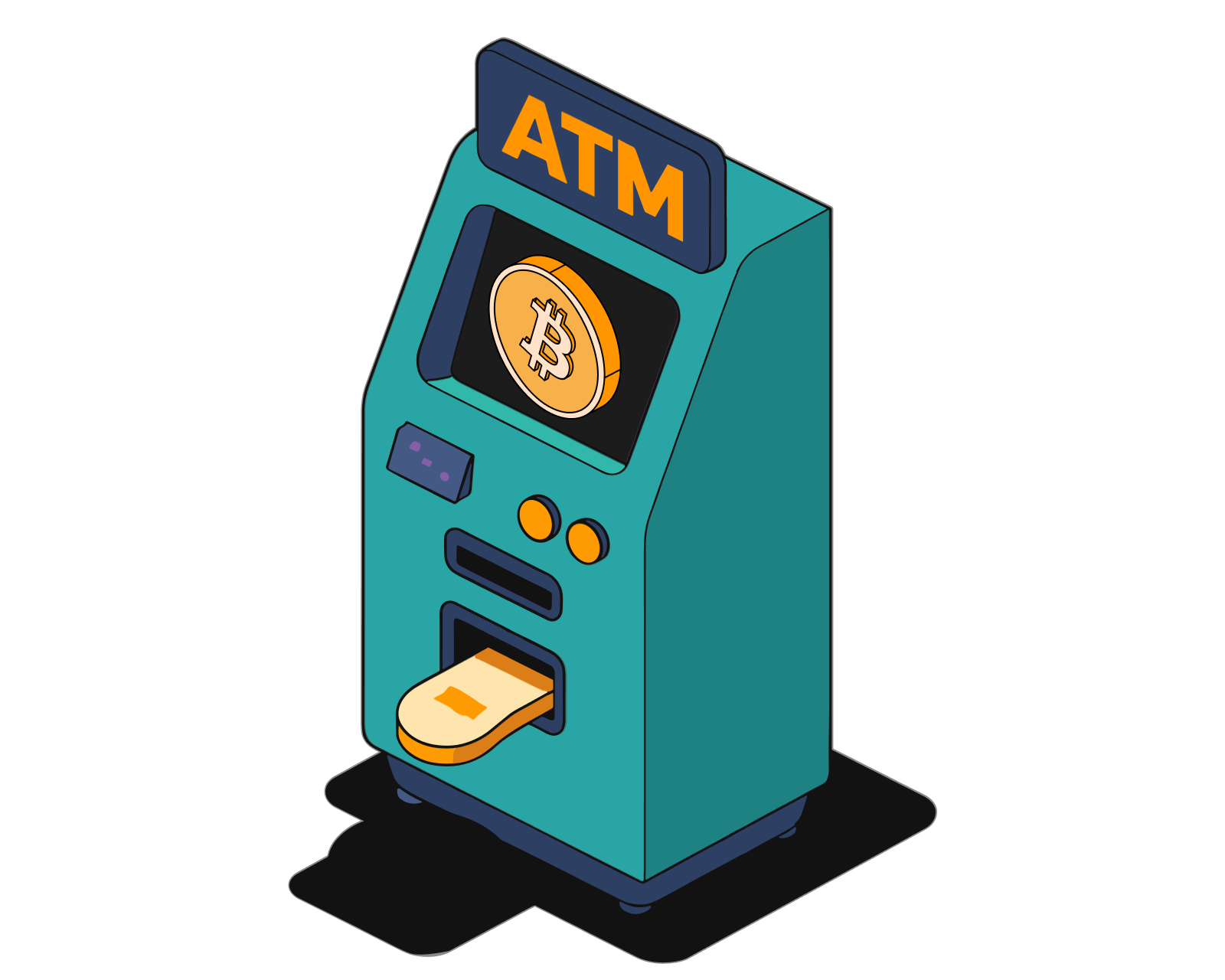
Crypto Tax Guide 2026
From Bitcoin to DeFi, NFTs, and staking rewards, every crypto transaction can create tax obligations. This guide explains global crypto tax rules, taxable events, and strategies to reduce liabilities.

Crypto Tax Guide 2026
From Bitcoin to DeFi, NFTs, and staking rewards, every crypto transaction can create tax obligations. This guide explains global crypto tax rules, taxable events, and strategies to reduce liabilities.

Cryptocurrency taxation in the UK
Get an overview of tax law as it applies to cryptocurrency in the United Kingdom.

Cryptocurrency taxation in the UK
Get an overview of tax law as it applies to cryptocurrency in the United Kingdom.

Cryptocurrency taxation in Germany
Get an overview of tax law as it applies to cryptocurrency in Germany.

Cryptocurrency taxation in Germany
Get an overview of tax law as it applies to cryptocurrency in Germany.

Crypto Taxes in the U.S.: Complete 2026 Guide
The IRS treats cryptocurrency as property, meaning every trade, sale, or income event is taxable. This guide explains IRS rules, forms, and strategies to report crypto correctly and reduce liabilities.

Crypto Taxes in the U.S.: Complete 2026 Guide
The IRS treats cryptocurrency as property, meaning every trade, sale, or income event is taxable. This guide explains IRS rules, forms, and strategies to report crypto correctly and reduce liabilities.

NFT Tax Guide 2026
NFTs create unique tax obligations for creators, collectors, and investors. This guide explains how NFTs are taxed worldwide, covering sales, royalties, staking, donations, and reporting requirements.

NFT Tax Guide 2026
NFTs create unique tax obligations for creators, collectors, and investors. This guide explains how NFTs are taxed worldwide, covering sales, royalties, staking, donations, and reporting requirements.

Crypto Airdrop Tax Guide 2026
Cryptocurrency airdrops may feel like free money, but tax authorities treat them as taxable income. This guide explains IRS rules, global tax treatment, reporting forms, and strategies to reduce liabilities.

Crypto Airdrop Tax Guide 2026
Cryptocurrency airdrops may feel like free money, but tax authorities treat them as taxable income. This guide explains IRS rules, global tax treatment, reporting forms, and strategies to reduce liabilities.
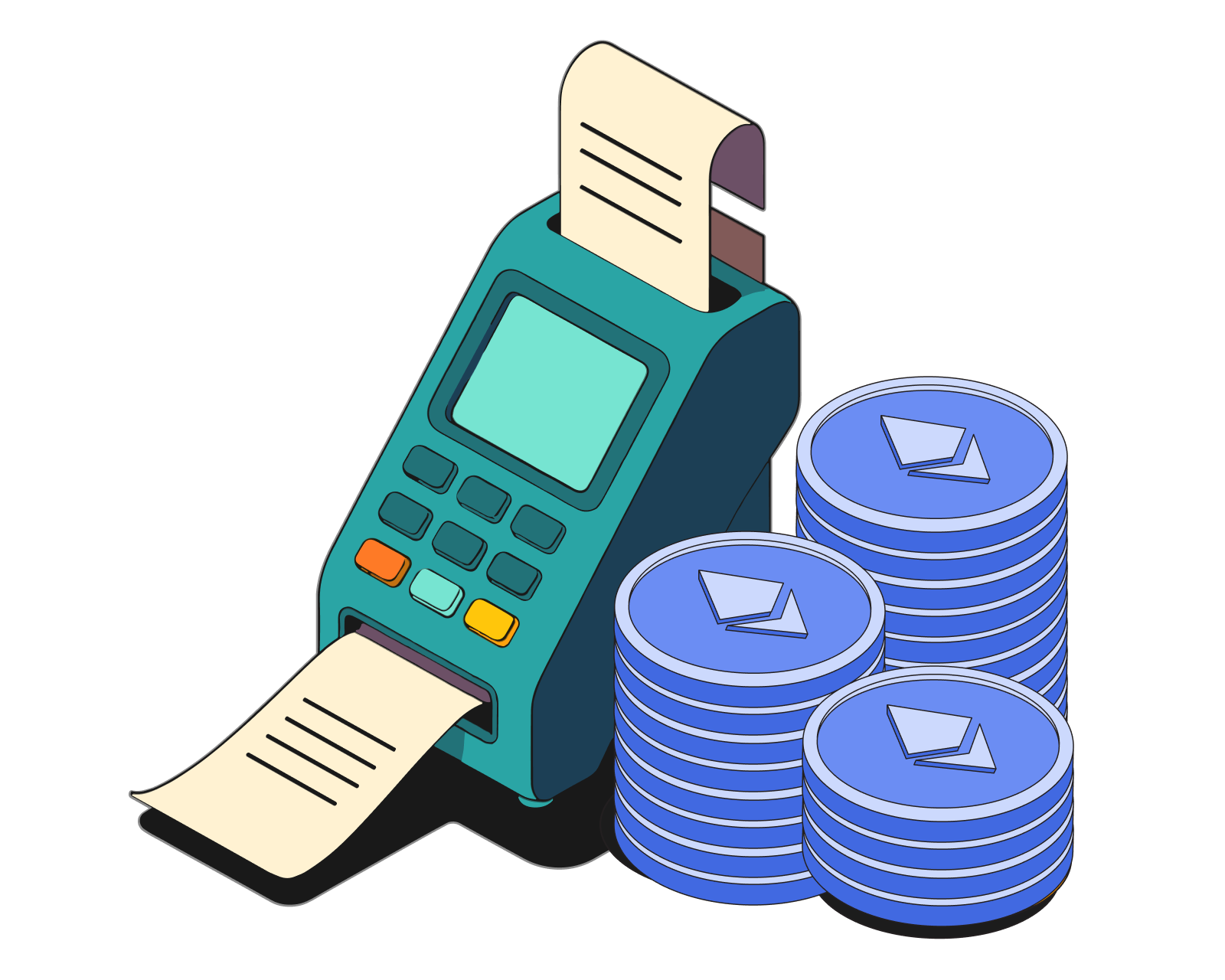
ICO Taxation Explained: Global 2026 Guide
ICOs create unique tax obligations for investors, traders, and founders. This guide explains how ICOs are taxed worldwide, covering utility vs. security tokens, taxable events, cross-border compliance, and reporting strategies.

ICO Taxation Explained: Global 2026 Guide
ICOs create unique tax obligations for investors, traders, and founders. This guide explains how ICOs are taxed worldwide, covering utility vs. security tokens, taxable events, cross-border compliance, and reporting strategies.

Bitcoin Mining Tax Reporting Guide 2026
Bitcoin mining rewards are taxable as ordinary income when received, with additional capital gains when sold. This guide explains global tax rules, reporting requirements, deductible expenses, and compliance strategies.

Bitcoin Mining Tax Reporting Guide 2026
Bitcoin mining rewards are taxable as ordinary income when received, with additional capital gains when sold. This guide explains global tax rules, reporting requirements, deductible expenses, and compliance strategies.
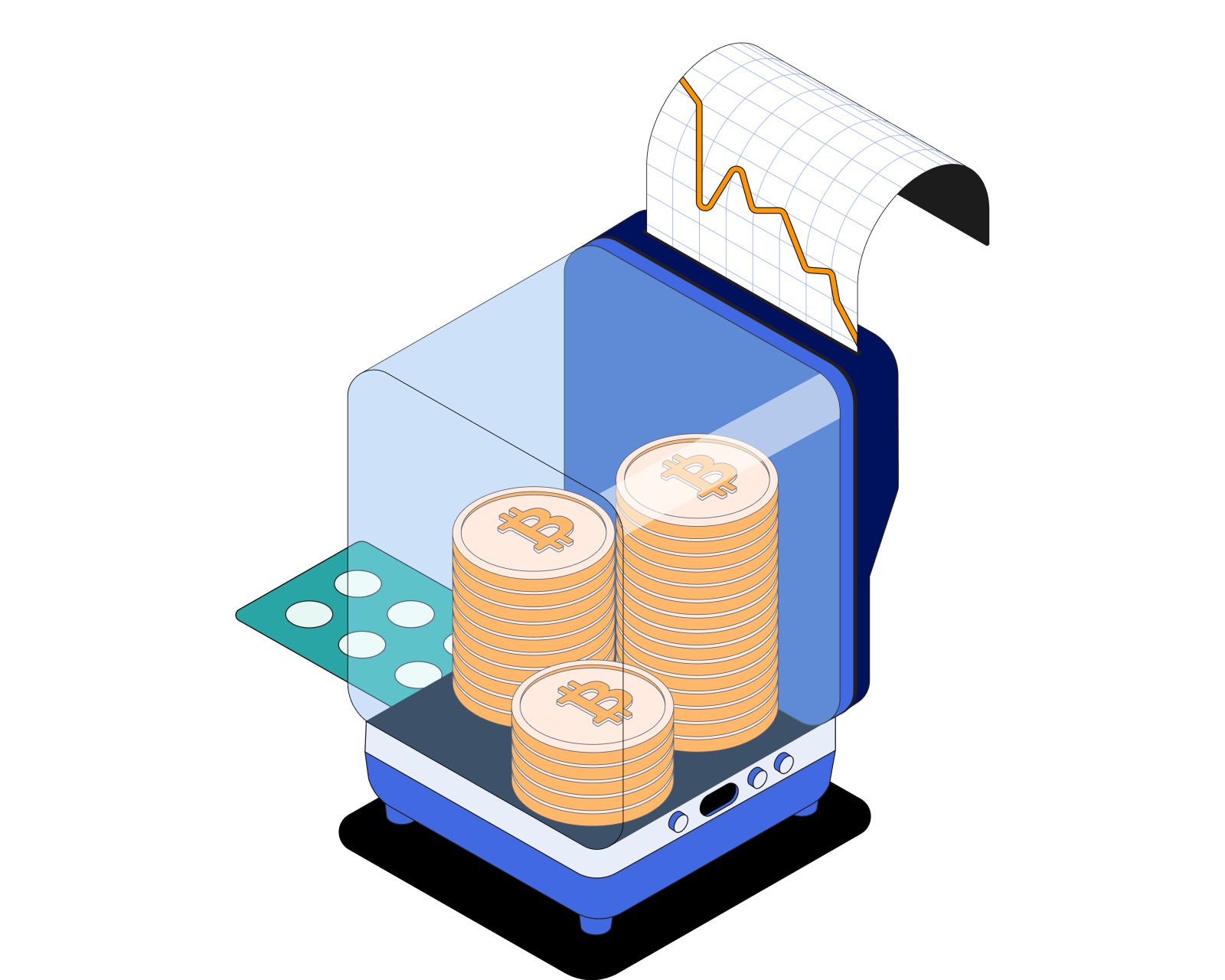
Staking Income Tax Reporting Guide 2026
Staking rewards are taxable in most jurisdictions and must be reported correctly. This guide explains IRS, CRA, HMRC, and ATO rules for staking income, covering taxable events, fair market value tracking, and compliance strategies.

Staking Income Tax Reporting Guide 2026
Staking rewards are taxable in most jurisdictions and must be reported correctly. This guide explains IRS, CRA, HMRC, and ATO rules for staking income, covering taxable events, fair market value tracking, and compliance strategies.
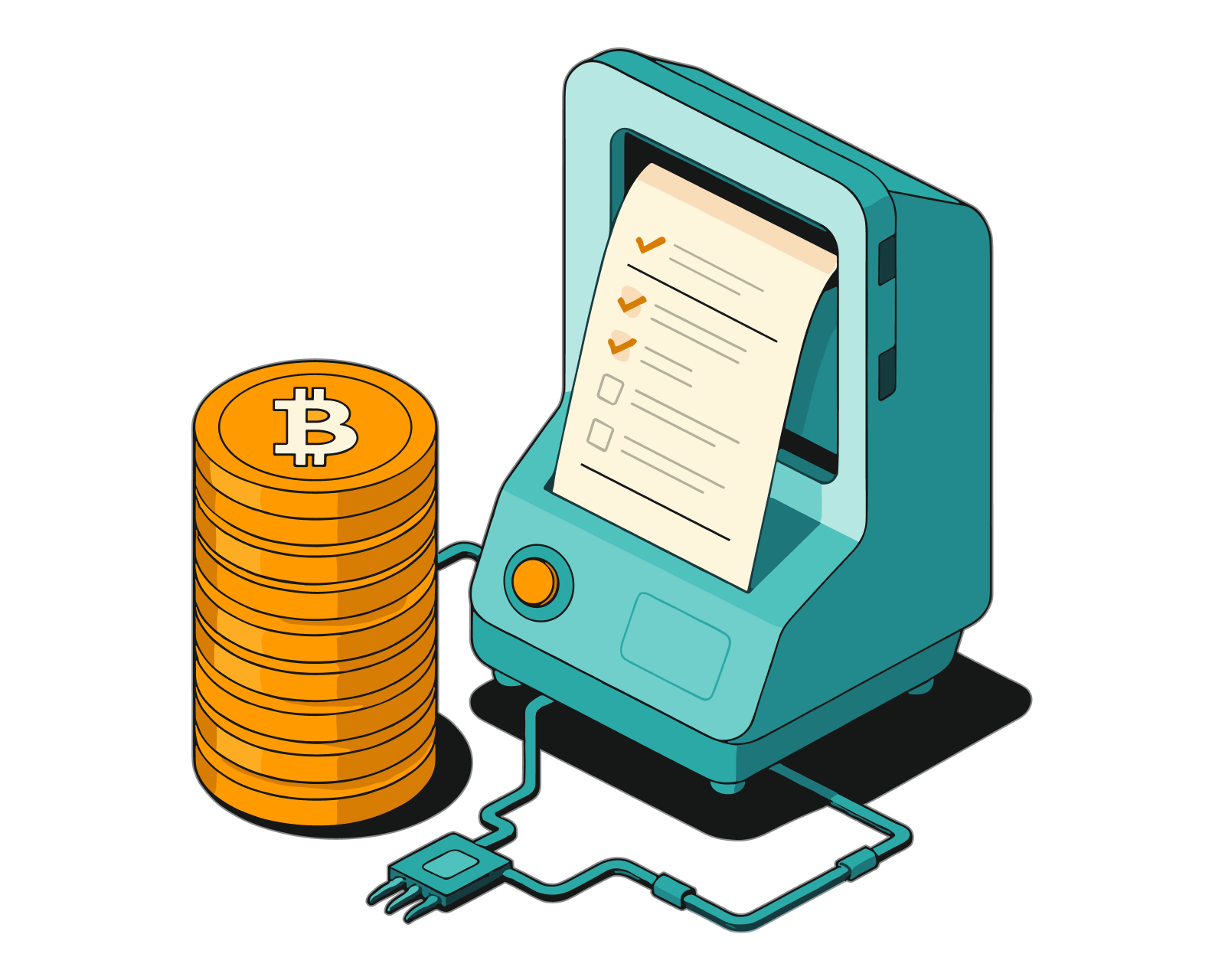
Yield Farming Tax Reporting Guide 2026
Yield farming rewards are taxable income in most jurisdictions. This guide explains how to classify DeFi rewards, track fair market value, calculate capital gains, and report yield farming income correctly.

Yield Farming Tax Reporting Guide 2026
Yield farming rewards are taxable income in most jurisdictions. This guide explains how to classify DeFi rewards, track fair market value, calculate capital gains, and report yield farming income correctly.
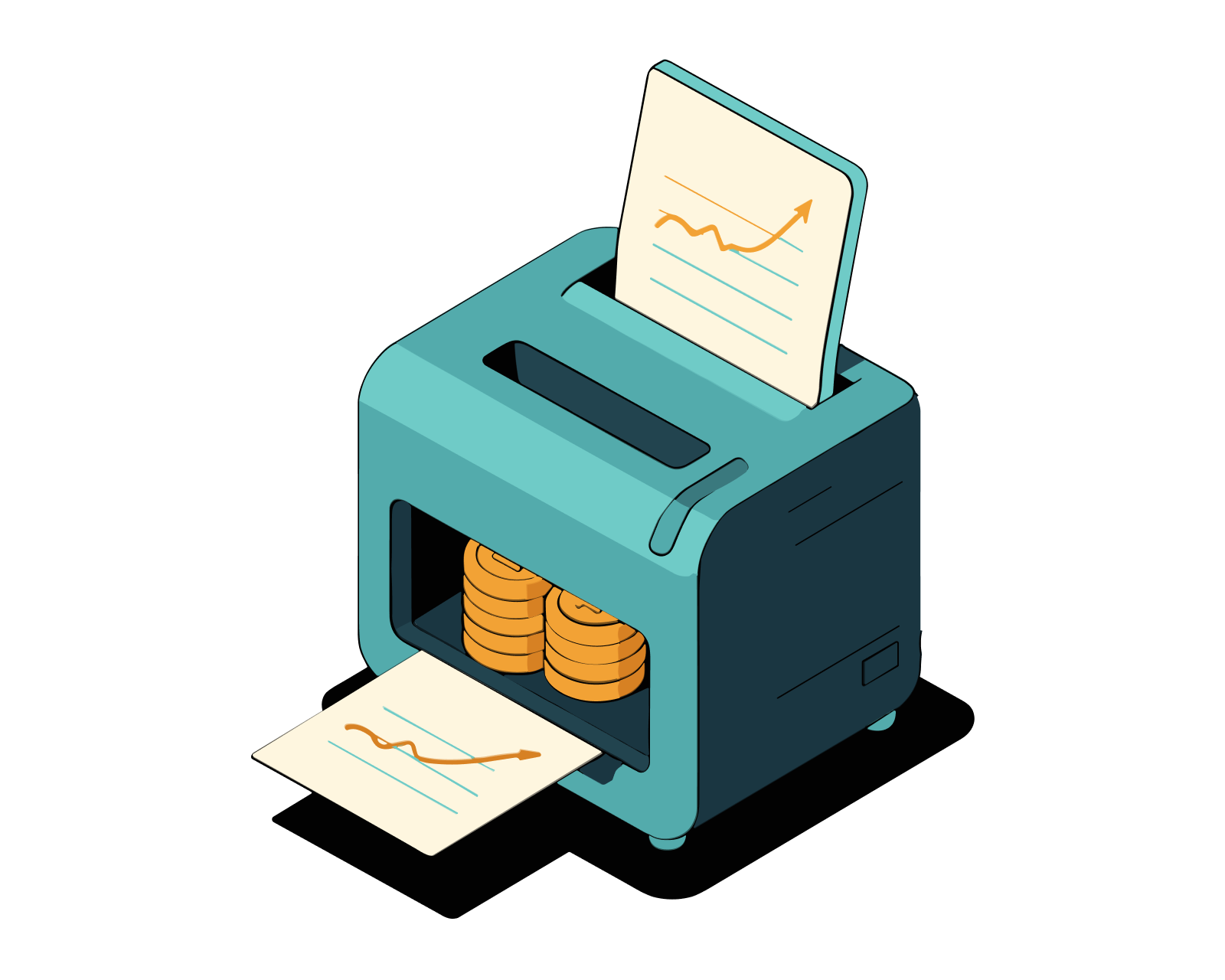
Crypto Rewards Tax Guide 2026
From staking and mining to DeFi yield farming and NFTs, crypto rewards can create taxable income. This guide explains how different rewards are taxed globally and how to report them correctly.

Crypto Rewards Tax Guide 2026
From staking and mining to DeFi yield farming and NFTs, crypto rewards can create taxable income. This guide explains how different rewards are taxed globally and how to report them correctly.
STAY AHEAD IN CRYPTO
Stay ahead in crypto with our weekly newsletter delivering the insights that matter most
Weekly crypto news, curated for you
Actionable insights and educational tips
Updates on products fueling economic freedom
No spam. Unsubscribe anytime.

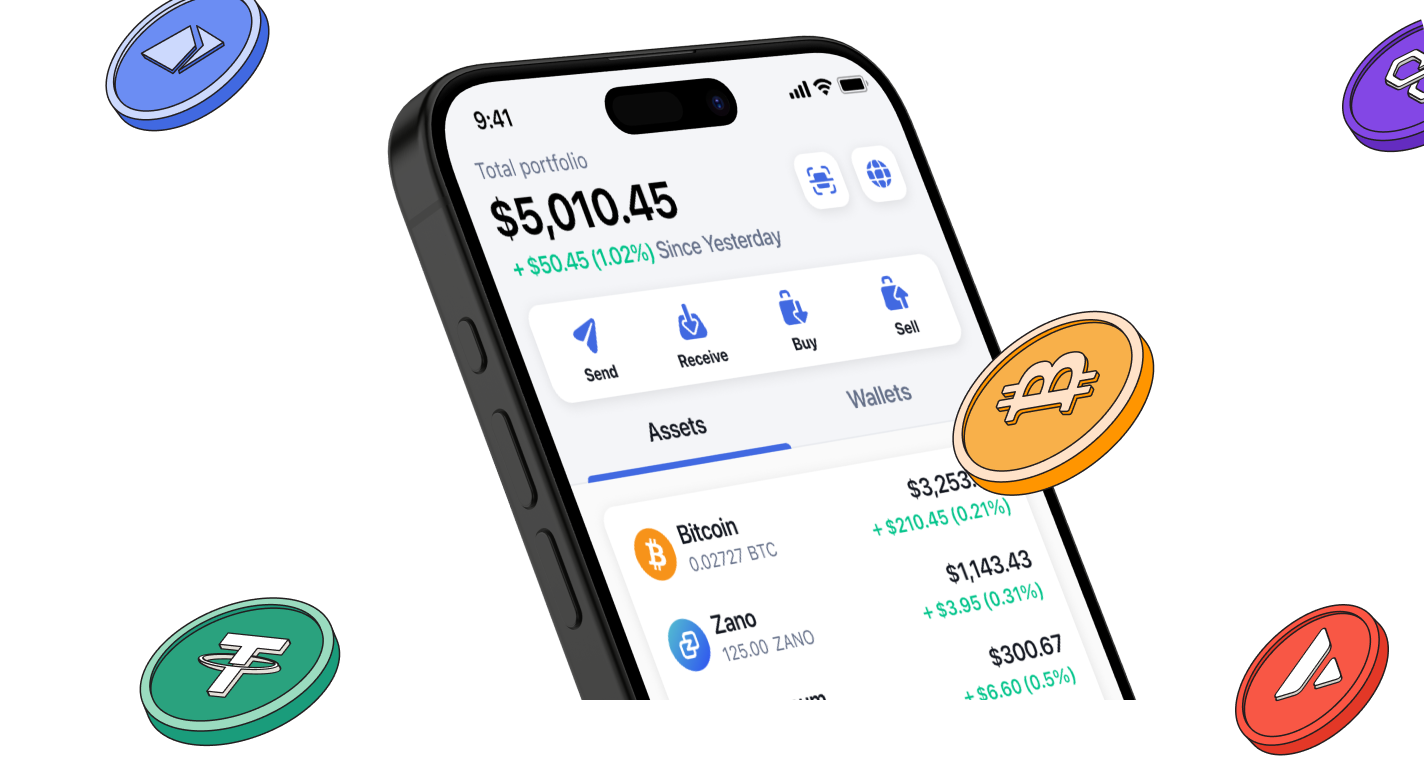

Start investing safely with the Bitcoin.com Wallet
Over wallets created so far
Everything you need to buy, sell, trade, and invest your Bitcoin and cryptocurrency securely

© 2026 Saint Bitts LLC Bitcoin.com. All rights reserved


